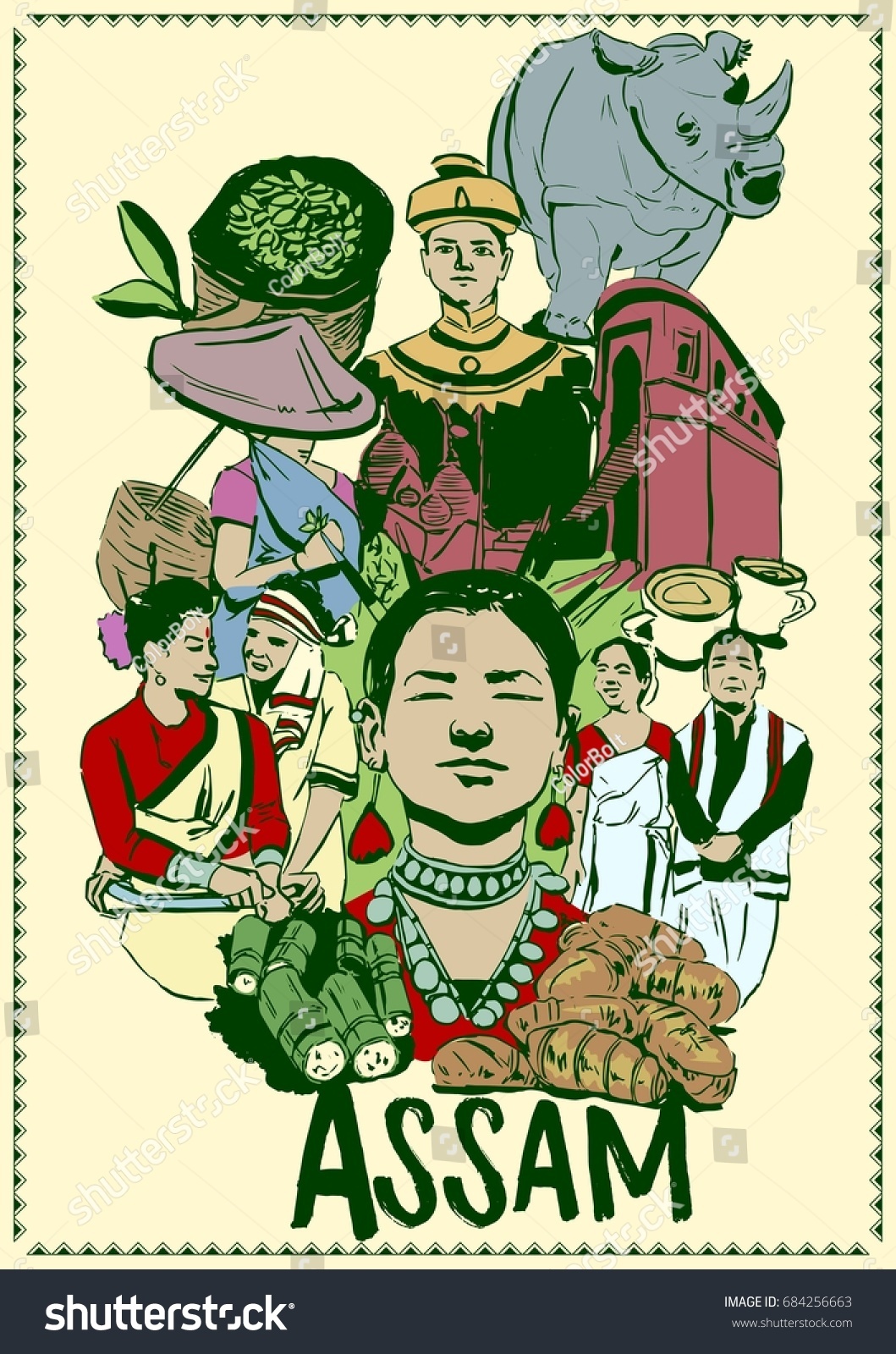ASSAM THE LAND OF TEA
Assam is one of the Eight Sister states of northeastern India. Known for its rich culture and diverse population, the culture of Assam is a fusion of Indo Burmese, Mongolian and Aryan influences. This beautiful land, known as the 'land of red rivers and blue hills' is a little paradise with untouched natural landscapes worth to be traversed for its pristine beauty. The people of the state are collectively called Axomiyas and the language Axomiya (Assamese) which is also the most widely spoken official state language.
Customs and traditions play a significant role in the society and the Assamese strictly adhere to the customs laid down by their forefathers, pertaining to their communities. These customs are beliefs that originated in the past and have been followed ever since, generation after generation. The weddings, birth, death and festivals in Assam include many customs that are supposed to be followed by all. For instance, the Assamese use bamboo to welcome guests because of their attachment to the bamboo culture. Known as Jaapi, this is basically known as the sunshade of Assam. It is made of bamboo strips and dried palm leaves locally known as Tokow Pat. There are many types of Jaapi like the Halua Jaapi, Pitha Jaapi, Sorudoiya Jaapi, Bordoiya Jaapi, Cap etc. These Jaapis were also used as headwear back in the olden days, mostly by rich and noble families. They are also used by farmers and peasants as umbrellas in the paddy fields. People of Assam always believed in the joint family system and it is still prevalent among both tribal and non-tribal communities. The rule that was followed for inheritance was called Dayabhaga. This system holds strong even today. The custom is that a child cannot claim his share in the property of the father as long as the father lives. Some of the tribes follow customs like the matriarchal system, which asserts that the mother is the center of the clan and that her property will be given to her daughters. If there are no daughters, it will be passed to the youngest daughter of her sister. The prevalent custom among the Dimasa-Kacharis is that the sons inherit the father's property while the daughters inherit the mother's property.





Comments
Post a Comment